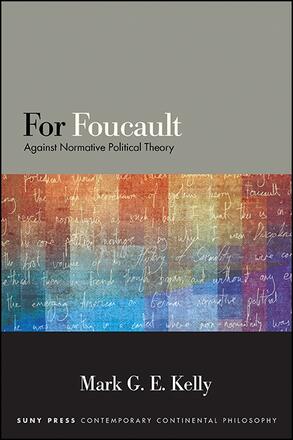
For Foucault
Against Normative Political Theory
Alternative formats available from:
Calls for a Foucauldian approach to political thought that is intrinsically resistant to power and subordination to public policy.
Description
This book comprises a series of staged confrontations between the thought of Michel Foucault and a cast of other figures in European and Anglophone political philosophy, including Marx, Lenin, Althusser, Deleuze, Rorty, Honneth, and Geuss. Focusing on the status of normativity in their thought, Mark G. E. Kelly explains how Foucault's position in relation to political theory is different, and, over the course of the book, describes a distinctive Foucauldian stance in political thought that is maximally anti-normative, anti-theoretical, and anti-political. For Foucault aims to undermine attempts to discern the appropriate form of political action, instead putting forward a rigorously critical program for a political theory that lacks any moralizing or totalizing dimension, and serves only to side with resistance against power, and never with power itself. Looking at attempts to think radically about politics from Marx to the present day, Kelly traces a novel history of political thought as a trend of attempts to overcome the constraints of normativity, theoreticism, and subordination to public policy. He concludes by assessing and rejecting recent attempts to reclaim Foucault for a form of normative politics by associating him with neoliberalism.
Mark G. E. Kelly is Associate Professor and ARC Future Fellow in the School of Humanities and Communication Arts at Western Sydney University in Australia. His books include Foucault and Politics: A Critical Introduction; Biopolitical Imperialism; and The Political Philosophy of Michel Foucault.
Reviews
"…original, thought-provoking…" — Notre Dame Philosophical Reviews
"This original and insightful book makes a significant contribution to political philosophy." — Stuart Elden, author of Foucault: The Birth of Power